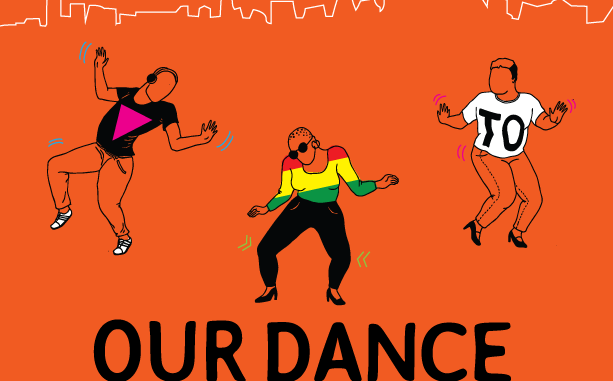
On September 15, 2020 as part of Ontario Public Interest Research Group’s (OPIRG) Disorientation week. BLM Nogojiwanong, Reframe Film Festival, and OPIRG joined forces to showcase the film Our Dance of Revolution. This documentary film, directed by Phillip Pike, showcases the way in which Black queer folks demanded and carved out their space in Toronto during the past four decades. Pike, who was a human-rights lawyer, turned to producing a film where he could focus on documenting those who are unknown or “lost” in the LGBTQ community.
After the film – which is absolutely amazing I might add – Pike participated in a Q & A session with BLM Nogojiwanong. I will summarize below some key conversation:
BLM: Often with BLM movements, there is negativity or violence highlighted. This film has a very different feeling, why did you go this route?
Pike: I think as a filmmaker the work is to tell a story. The narrative of this film is a part of my own journey. This was about people coming together because they didn’t have other places to go. It’s a very human journey and one of friendship.
BLM: Did you ever have moments of throwing in the towel and what brings your passions back?
Pike: Part of what I had to do was to pull back and step away from that work. It’s about clarity of why you’re doing the work you’re doing. The motivation should be the thing that gets us out of bed in the morning. It’s more about me finding the right answer, having the right person there for you when you need help. It’s about perspective. My core belief is there’s always another way of doing something, step back and look at the alternatives. We all have different roles to play as activists. People cooking, taking care of the front-line activists. Those people are still doing the work.
…It’s about what you’re doing on a day in day out basis. What are you doing to advocate for Black bodies? Where are the concrete actions?

—–
This is a great reminder that when you are doing activism, to do it for the right reasons, understand your position, and the ways in which you can collaborate and share your skills that aid towards community care.
I interviewed Jade, a first-year student from Ottawa, Ontario. As a queer individual and someone whose Jamaican-Canadian this film particularly hit home for her.
A: What feelings does this film bring up for you?
Jade: I’ve always struggled to find a Black community that’s truly accepting of me being bi-racial, a woman and in fact, I never found a Black community that was also queer. I understand a lot of the judgment stems from colonization and religion, but with Black queers doing so much for the community, I still haven’t seen that space. The view of Black Canadian queers is important, but this spoke to me on another level as someone who is Jamaican. I’ve never seen acceptance of queers from my own culture before. I felt I was finally seeing people I could fully connect with, people who share the same conflicting aspects of identity. This brought me to a sense of peace and community, and only reinforced my belief that having these spaces available and accessible is so important. Events like this, activism like this, literally could be saving lives.
A: Seeing this great source of community, how does Ottawa compare to where you live now (Peterborough)?
Jade: I’ve only been in Peterborough for a month, but I can already notice the cultural differences between here and Ottawa. The capital city has a huge lack of engagement with the community. Granted, I didn’t live in the downtown core, but I’ve met plenty of marginalized people who grow up feeling isolated and alone. Having a place for people like that in Ottawa would be very empowering. On the other hand, I live alone in Peterborough yet, feel safer being an openly queer woman of colour than I ever have in Ottawa.
A: How are you feeling about the Q&A portion?
Jade: Being able to discuss his life and art after watching the documentary made it feel more real. This wasn’t just a distant memory of a place, or a time to reminisce about what used to be. There’s people still existing and who are standing up for our uniquely intersectional community.
A: Did you enjoy how the film displayed the positives?
Jade: Yes. I can’t imagine how different my life would be if I had watched something like this as a kid. Even now, as a more confident young adult, I’m faced with existential questions: who am I? Why am I like this? Am I the only one? Now I know, I’m not. There’s other people like me out there.
In my opinion, focusing on the Canadian perspective is crucial because we often hear opinions from those in the United States. It’s important to know our past, what our communities looked like and acknowledge that so many voices remain unheard. Toronto has always had queer Black voices, so why are we only hearing them now? It reminds me of those people who post about the activism of Marsha P Johnson during Pride, yet don’t make space for Black queer people they know in real life. What remains clear, is that Pike understands the true meaning of friendship and community. He himself, continues to empower spaces and inspire Black queer folks with his passion for activism and film, Our Dance of Revolution.
Note: Thank you everyone who participated in this event and set it up. Special thanks to Phillip Pike, BLM NOGO, Jade, Reframe Film Fest, and OPIRG.
